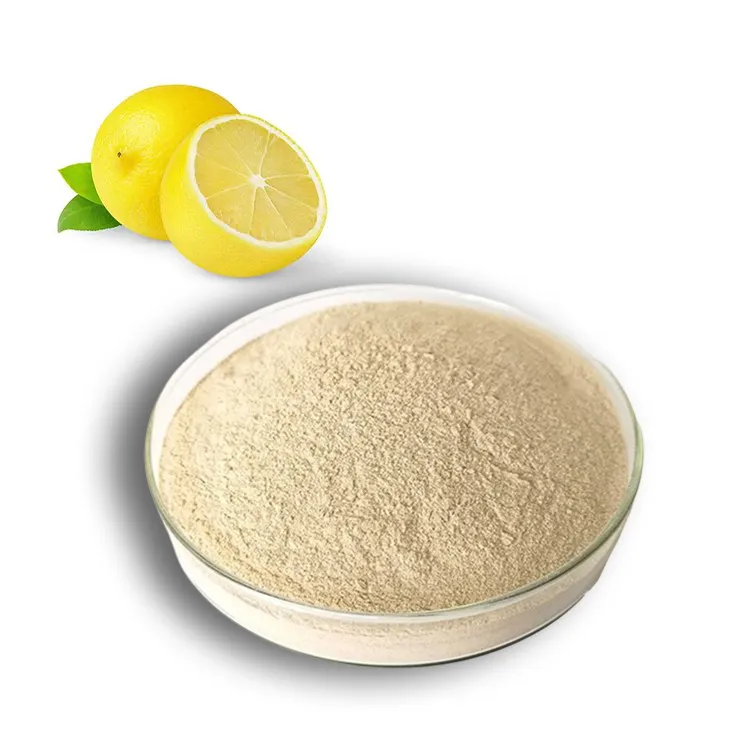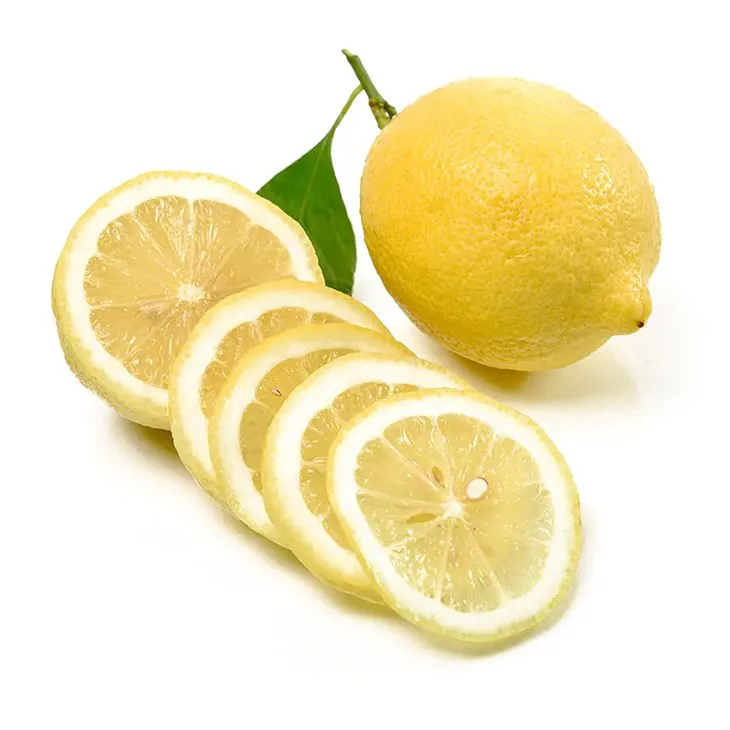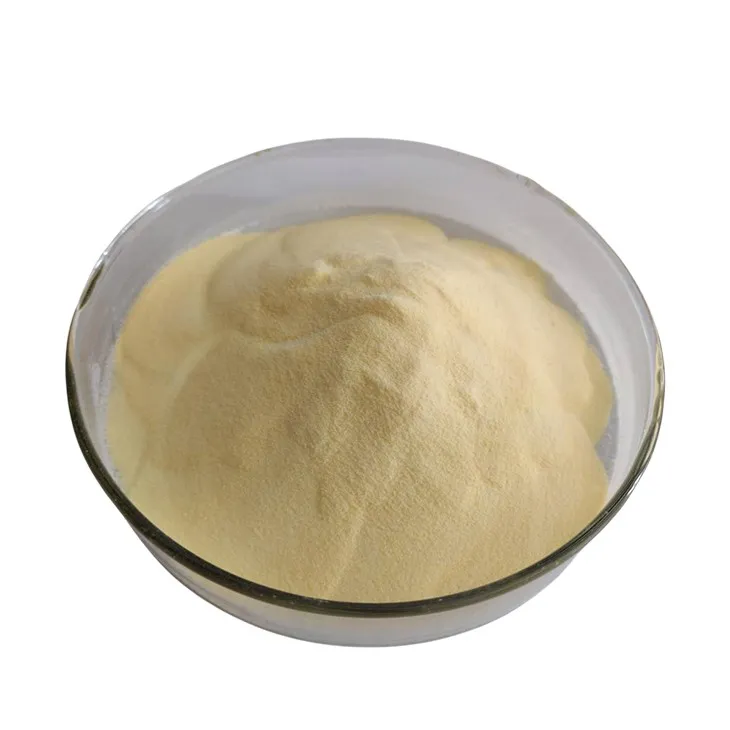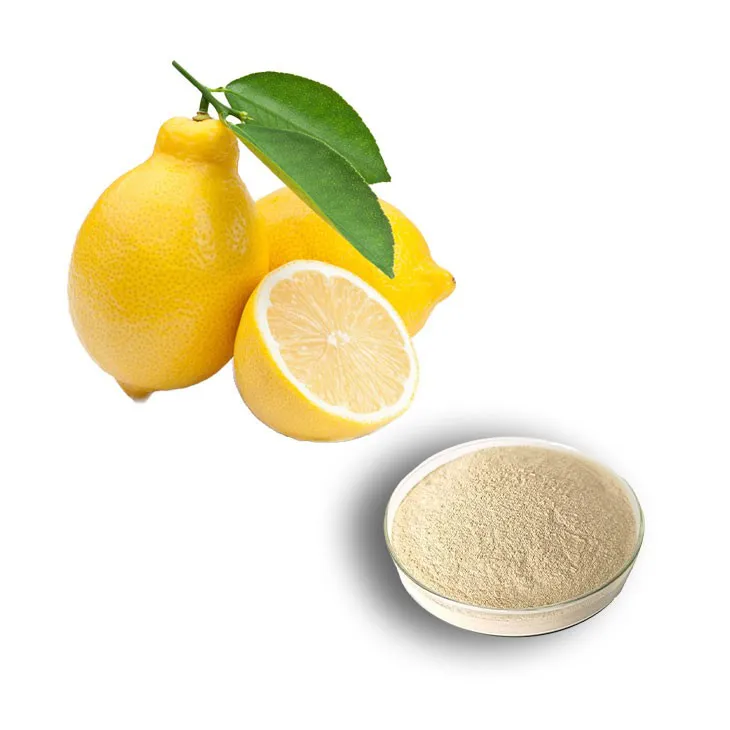- 0086-571-85302990
- sales@greenskybio.com
Lemon Extract: Nature's Best - Kept Secret.
2024-11-13

Introduction
Lemon Extract, often overlooked, is truly nature's well - kept secret. It is a powerful ingredient with a wide range of benefits that span across different aspects of our lives. From its rich nutritional profile to its diverse applications in various fields, Lemon Extract has much to offer.

Nutritional Powerhouse
Lemon Extract is rich in vitamins, especially vitamin C. Vitamin C is a crucial nutrient for the human body. It plays a significant role in maintaining a healthy immune system. A strong immune system helps the body fight off diseases and infections, keeping us healthy. Antioxidant properties are another important aspect of lemon extract's nutritional value. Antioxidants help in neutralizing free radicals in the body. Free radicals are unstable molecules that can cause damage to cells and contribute to various health problems such as aging, cancer, and heart diseases. By consuming lemon extract, we can introduce these antioxidants into our body and reduce the risk of such health issues.

Skincare Applications
Healthy Complexion
In the realm of skincare, lemon extract is a remarkable ingredient. It promotes a healthy complexion. The vitamin C present in lemon extract helps in collagen synthesis. Collagen is a protein that is essential for maintaining the elasticity and firmness of the skin. As we age, the production of collagen in our body decreases, leading to wrinkles and sagging skin. By using products containing lemon extract, we can boost collagen production and keep our skin looking youthful and radiant.
Acne Treatment
Lemon extract also has properties that can be beneficial for treating acne. Its antibacterial properties help in fighting the bacteria that cause acne breakouts. Acne is often caused by the overgrowth of bacteria on the skin, and lemon extract can help in reducing this bacterial growth. Additionally, it can help in exfoliating the skin gently, removing dead skin cells that can clog pores and lead to acne. However, it should be used with caution as it can also cause skin irritation in some people, especially those with sensitive skin.

Culinary Wonders
Refreshing Flavor
In the culinary world, lemon extract imparts a refreshing flavor. It is a versatile ingredient that can be used in a variety of dishes. In baking, it can add a tangy and citrusy flavor to cakes, cookies, and pastries. For example, lemon extract can be used in lemon cakes to enhance the lemon flavor, making it more intense and delicious. In savory dishes, it can be used to brighten up the flavors. It can be added to marinades for meats, fish, or poultry, adding a unique flavor profile. Lemon extract can also be used in salad dressings, providing a refreshing and zesty touch.
Preservative Qualities
Another interesting aspect of lemon extract in the culinary field is its preservative qualities. The acidity of lemon extract can help in preventing the growth of bacteria and mold in certain foods. This makes it a natural alternative to chemical preservatives. For instance, in homemade jams or pickles, a small amount of lemon extract can be added to extend their shelf life. It not only helps in preservation but also adds a pleasant flavor to the preserved items.

Other Applications
Household Uses
Lemon extract can also be used for various household purposes. It has a natural cleaning ability due to its acidity. It can be used to clean countertops, sinks, and other surfaces in the kitchen and bathroom. Mixed with water, it can be sprayed on surfaces and wiped clean, leaving a fresh lemon scent behind. Additionally, it can be used to remove stains from fabrics. For example, a small amount of lemon extract can be applied to a stain on a white shirt and left for a while before washing. It can often help in lightening or completely removing the stain.
Haircare
In the area of haircare, lemon extract can offer some benefits as well. It can be used to add shine to dull hair. The acidity in lemon extract can help in closing the hair cuticles, which in turn reflects more light and gives the hair a shiny appearance. It can also be used to treat dandruff. The antibacterial and antifungal properties of lemon extract can help in combating the microorganisms that cause dandruff. However, it should be diluted properly before use as undiluted lemon extract can be too harsh on the hair and scalp.
How to Incorporate Lemon Extract
In Skincare
- For a simple face mask, mix a small amount of lemon extract with honey and apply it to the face. Leave it on for 10 - 15 minutes and then rinse off with warm water.
- If using lemon extract for acne treatment, dilute it with water and apply it to the affected areas using a cotton swab. Start with a small amount to test for any skin irritation.
In Culinary
- When baking, add 1 - 2 teaspoons of lemon extract to your cake or cookie batter for a lemony flavor.
- For salad dressings, mix lemon extract with olive oil, vinegar, and seasonings to create a refreshing dressing.
Precautions
While lemon extract has many benefits, it is important to take some precautions. As mentioned earlier, it can cause skin irritation in some people, especially those with sensitive skin. Therefore, it is advisable to do a patch test before using it on a large area of the skin. Ingesting large amounts of lemon extract can also cause some digestive issues in some individuals. It is always best to use it in moderation. Additionally, when using lemon extract for cleaning purposes, make sure to keep it away from eyes and mucous membranes as it can cause irritation.
Conclusion
Lemon extract is truly a wonder ingredient that has been nature's best - kept secret for far too long. Its numerous benefits in nutrition, skincare, culinary, household, and haircare make it a valuable addition to our lives. By understanding its properties and learning how to use it correctly, we can unlock the hidden wonders of lemon extract and enjoy all that it has to offer.
FAQ:
What are the main vitamins in lemon extract?
Lemon extract is rich in various vitamins, with vitamin C being one of the most prominent. Vitamin C is well - known for its antioxidant properties and plays a crucial role in maintaining overall health.
How does lemon extract benefit skincare?
Lemon extract can benefit skincare in multiple ways. Its antioxidant properties help fight free radicals, which can damage the skin. It may also help in brightening the complexion, reducing the appearance of blemishes, and providing a natural glow to the skin.
What kind of refreshing flavor does lemon extract impart in cooking?
In the culinary world, lemon extract imparts a bright, tangy, and citrusy flavor. It can enhance the taste of both sweet and savory dishes. For example, in baking, it can add a zesty note to cakes and cookies, and in cooking, it can brighten up the flavor of fish, poultry, or vegetables.
Can lemon extract be used directly on the skin?
While lemon extract has beneficial properties for the skin, it is usually not recommended to be used directly on the skin in its pure form as it can be too acidic and may cause irritation. It is often diluted or used as an ingredient in skincare products.
How is lemon extract made?
Lemon extract is typically made by extracting the essence of lemons. This can be done through various methods such as cold - pressing the lemons to obtain the juice and then further processing it to concentrate the flavors and beneficial compounds.
Related literature
- The Nutritional Benefits of Lemon Extract"
- "Lemon Extract in Skincare: Science and Applications"
- "Culinary Uses of Lemon Extract: Flavor Enhancement"
- ▶ Hesperidin
- ▶ citrus bioflavonoids
- ▶ plant extract
- ▶ lycopene
- ▶ Diosmin
- ▶ Grape seed extract
- ▶ Sea buckthorn Juice Powder
- ▶ Beetroot powder
- ▶ Hops Extract
- ▶ Artichoke Extract
- ▶ Reishi mushroom extract
- ▶ Astaxanthin
- ▶ Green Tea Extract
- ▶ Curcumin Extract
- ▶ Horse Chestnut Extract
- ▶ Other Problems
- ▶ Boswellia Serrata Extract
- ▶ Resveratrol Extract
- ▶ Marigold Extract
- ▶ Grape Leaf Extract
- ▶ blog3
- ▶ blog4
- ▶ blog5
-
Organic Tongkat Ali extract powder factory.
2024-11-13
-
How to make powder with ashwagandha extract.
2024-11-13
-
Rosehip extract manufacturers from China.
2024-11-13
-
The best cat's claw extract in nature.
2024-11-13
-
Chinese Dandelion Leaf Extract Suppliers.
2024-11-13
-
Carrageenan Extract Powder
2024-11-13
-
White mustard seed extract
2024-11-13
-
Tinospora cordifolia extract
2024-11-13
-
Artichoke Leaf Extract
2024-11-13
-
Feverfew Extract
2024-11-13
-
American Ginseng Root Extract
2024-11-13
-
Nettle Root Extract
2024-11-13
-
Chia Seed Powder
2024-11-13
-
Selenium yeast
2024-11-13
-
Curcuma Longa Extract
2024-11-13





















